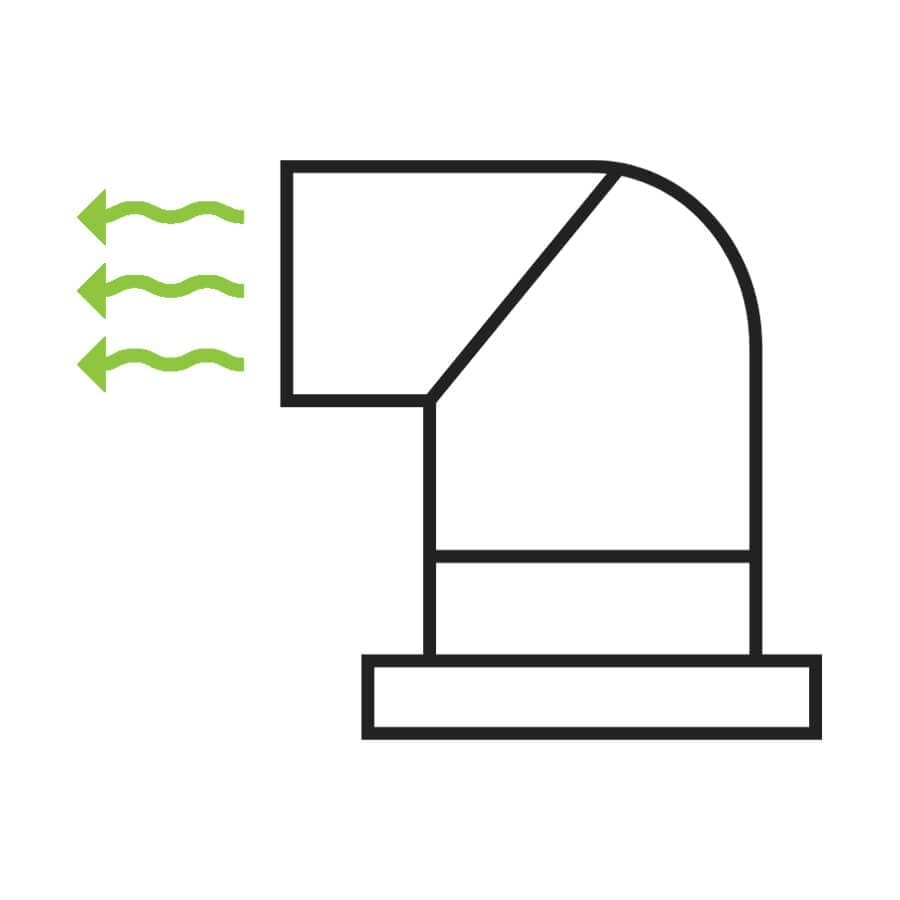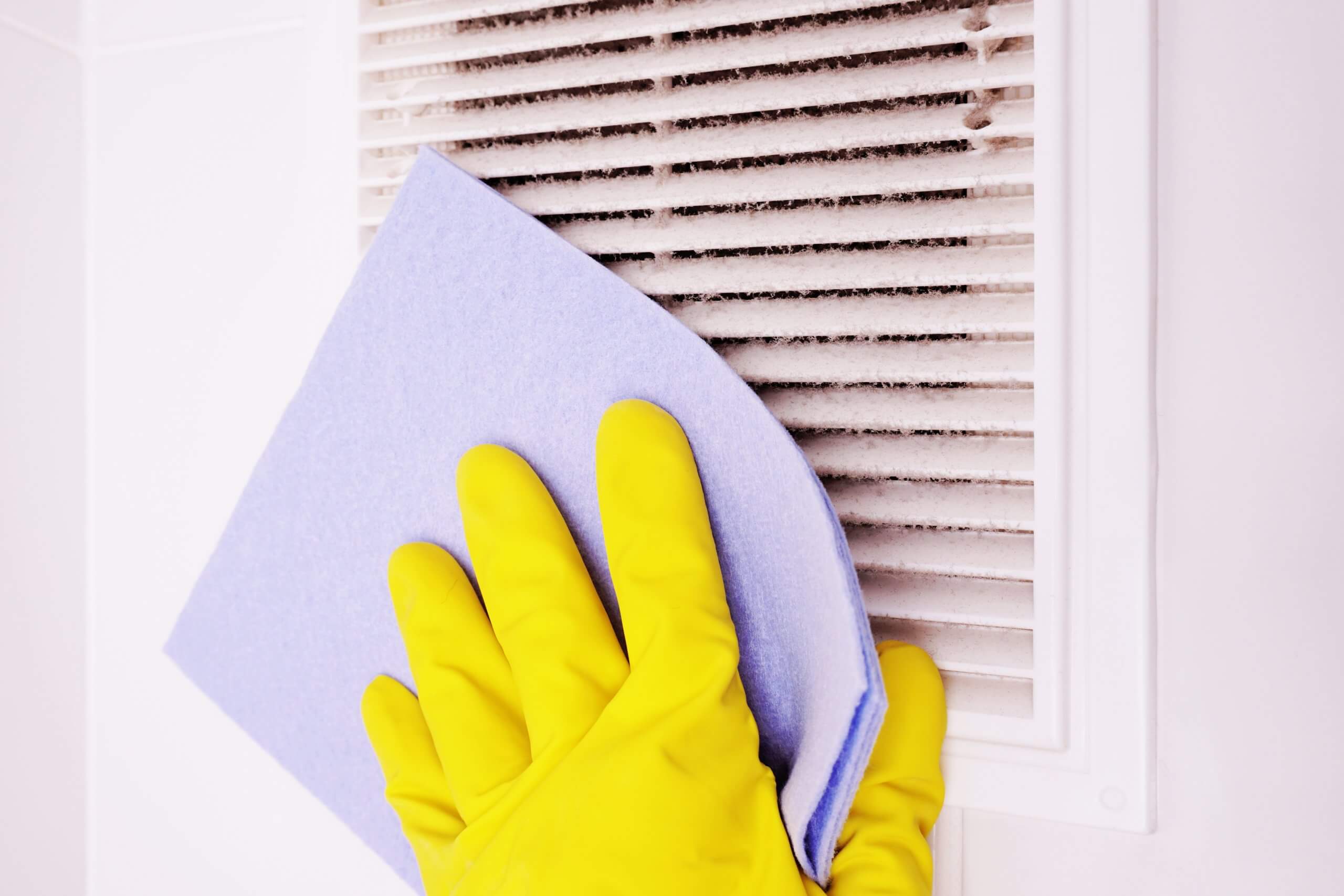According to the National Institute for Occupational Safety and Health (NIOSH), approximately half of all indoor air quality problems stem from the HVAC system. This is particularly concerning because HVAC systems are largely responsible for improving indoor air quality.
Ductwork is an integral part of every HVAC system, and, unfortunately, it is both the pathway for fresh, clean air and air pollutants. If ductwork is to be cleaned, it must be cleaned properly otherwise it may worsen indoor air quality.
Let’s take a look at what duct cleaning entails, best practices, and whether or not it’s beneficial.
What Does Air Duct Cleaning Include?
Ductwork may become contaminated with dust, pollen, mold, and other debris if not properly installed, maintained, and operated.
This is especially harmful to those that suffer from allergies, asthma, and other respiratory illnesses.
 HVAC System: Check out our HVAC duct cleaning guide to learn more about duct cleaning and indoor air quality. And, how to choose a duct cleaning company →
HVAC System: Check out our HVAC duct cleaning guide to learn more about duct cleaning and indoor air quality. And, how to choose a duct cleaning company →That said, duct cleaning refers to removing dust, pollen, mold, and other air pollutants in ductwork and other HVAC components (e.g., cooling coils, filters and condensate drain pans).
Before cleaning the ductwork, HVAC technicians will inspect the ductwork to determine the amount of debris present and decide which cleaning technique will be most beneficial.
To clean the ductwork, HVAC technicians must create negative pressure to ensure that the air pollutants do not spread throughout the home. They rely on brushes, vacuums and other tools to dislodge and remove debris.
After this process, techs will conduct another inspection to ensure the ductwork is thoroughly clean.
How Do I Know if My Air Ducts Need To Be Cleaned?
If you or your family members do not suffer from allergies, asthma or other respiratory illnesses, and you find that there is not a significant amount of debris or mold growth in your ductwork … then your air ducts do not need cleaning.
More often than not, grilles or vent covers have a thin layer of dust. This is completely normal. It is not a sign that your ductwork needs cleaning.
On the other hand, here are several reasons your ductwork may require cleaning:
- One or more occupants suffer from allergies, asthma or other respiratory illnesses
- There is visible mold growth
- There is an infestation of insects and vermin
- An excessive amount of debris is present
- Dust and debris are recirculating into the home
Air Duct Cleaning Best Practices
If you plan to have your ductwork cleaned, it is of the utmost importance that the HVAC technician adheres to recognized best practices.
We have created a brief list of best practices so that homeowners are aware of what is and isn’t safe.
- Techs should perform pre- and post-inspections.
- The HVAC system must be kept under negative pressure during the cleaning process to prevent debris from traveling throughout the home.
- The cleaning process must be safe for occupants. Preferably, the cleaning should take place when occupants are not present.
- Sealants should not be used to cover interior-contaminated ductwork.
- Remove wet, water-damaged or contaminated insulation and porous materials.
- Equipment should be kept outside.
- The Environmental Protection Agency (EPA) “has not registered any products for disinfecting or sanitizing ductwork.”
Is Duct Cleaning Worth It?
First and foremost, when performed properly, no evidence suggests that ductwork cleaning is detrimental.
Second, some research suggests duct cleaning increases efficiency and lifespan while reducing maintenance costs.
Third, there is no evidence that ductwork cleaning prevents health issues.
Finally, there is no evidence that debris in the home increases due to dirty ductwork or decreases after ductwork cleaning.
The EPA “does not recommend that the air ducts be cleaned routinely, but only as needed.”
It is apparent why the debate over duct cleaning is seemingly never-ending. There is minimal evidence from both camps to suggest that this process is helpful or harmful. If anything, it appears unnecessary. However, don’t rule it out just yet.
There are several reasons why you may feel the need to have your ductwork cleaned.
If your reasoning has to do with health issues, we recommend that you talk to your doctor before making a decision.
If there are obvious indicators (e.g., mold, insects and excessive debris), we recommend that you talk to an indoor air quality expert before making a decision.
While ductwork may be the culprit, other HVAC components may be responsible.
The Verdict: It’s Hard To Say
It isn’t easy to provide a conclusive answer about the ductwork cleaning debate.
It seems as though unless mold, insects, rodents or significant amounts of debris are present, ductwork cleaning will not benefit indoor air quality.
However, If you think duct cleaning might be a good idea for your home, but you are not sure, talk to a professional! There is no harm in asking questions if you are concerned about your family’s well-being.






